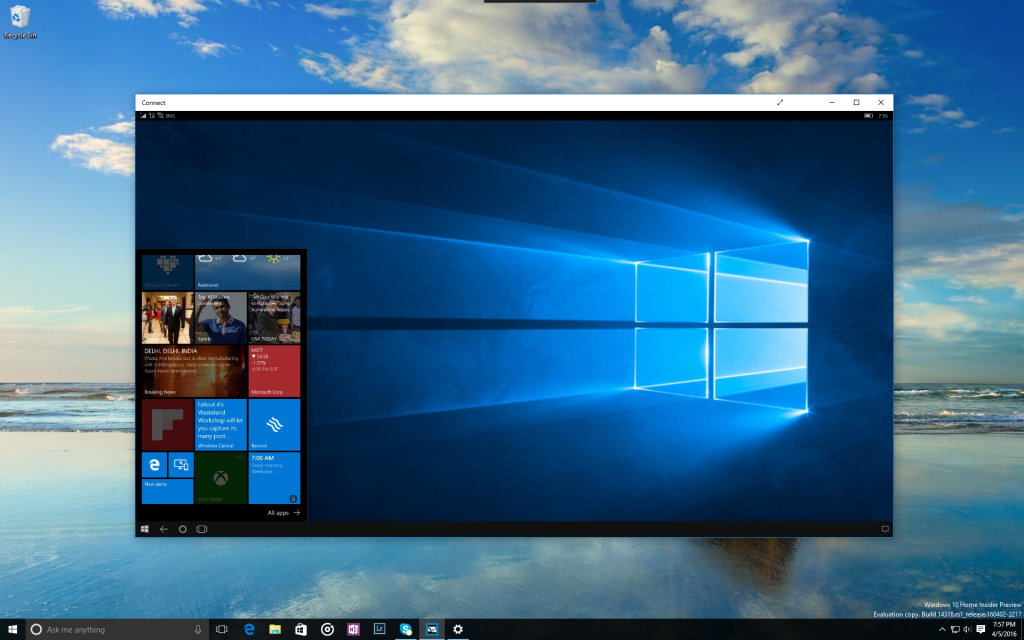

Microsoft has admitted that it does switch off third-party anti-virus software when Windows 10 is being updated, but it insists it only does it on a temporary basis.
Microsoft made the admission after Kaspersky Labs filed an official complaint earlier this month to both the European Commission (EC) and the German Federal Cartel Officer.
It alleged that Microsoft is abusing its dominant position in the operating system market to stop people purchasing third party security software and boost its own Windows Defender product.
Microsoft’s admission that it does sometimes switch off rival anti-virus packages during an update came in a blog posting by Rob Lefferts, a partner director of the Windows and Devices group at Microsoft.
Lefferts wrote that Windows 10 has been designed to be its most secure operating system, and that Redmond partners with the AV ecosystem to protect its customers.
Windows Defender Antivirus of course is bundled free with Windows 10 to ensure that every Windows device is protected from viruses and malware.
“We built Windows Defender Antivirus to make a promise to our customers that every Windows 10 device always has protection from viruses and malware,” said Lefferts. “Through our continued investments, our test results are among the top of security industry leaders, including recent real-world testing where Windows Defender Antivirus scored over 99 percent detection rates.”
But he insisted that Microsoft does work with rival AV companies.
“We also know that Window customers value choice and that is why we actively engage with and support a community of over 80 independent software vendors through the Microsoft Virus Initiative (MVI) program,” he added.
“This engineering program enables us to share key technical details of Microsoft technologies with our AV partners to collaborate on future directions and problem solve on existing security challenges to protect our shared customers from malicious software.”
Lefferts then went to explain how during an update, Windows 10 will sometimes temporarily disable other antivirus products.
He cited the fact that during April’s Windows 10 Creators Update, nearly all (95 percent) of the antivirus applications that Microsoft tested were fully compatible.
However a small percentage were not compatible.
“For the small number of applications that still needed updating, we built a feature just for AV apps that would prompt the customer to install a new version of their AV app right after the update completed,” he wrote. “To do this, we first temporarily disabled some parts of the AV software when the update began. We did this work in partnership with the AV partner to specify which versions of their software are compatible and where to direct customers after updating.”
“Once a customer has installed an active and up to date antivirus program, it will run without notifications or interference from Windows,” Lefferts wrote, before going on to promote Redmond’s own Windows Defender product.
“Microsoft’s own free, built-in Windows Defender Antivirus does not run periodic scans without explicit customer action or provide protection until the chosen third-party AV solution is no longer protecting the Windows 10 device due to expiration,” he wrote.
But he said Microsoft support teams do honour the AV choices made by customers.
“If AV software is protecting our customers, Windows Defender Antivirus will stay off,” he added. “If a customer does allow an antivirus application to expire, Windows Defender Antivirus is automatically turned on so that they are not left unprotected.”
It should be noted that Kaspersky Labs has complained about Microsoft’s behaviour before its official complaint to the EU this month.
Last year it made a similar complaint to Russian authorities.
The country’s Federal Antimonopoly Service (FAS) said the way Windows 10 handled third-party security products could “lead to unreasonable advantages for Microsoft on the software market”.
That complaint, said Kaspersky, resulted in Microsoft making some changes.
Microsoft of course has been convicted of antitrust behaviour in the past over its promotion of the Internet Explorer browser in Windows.
Apple fined 150m euros over App Tracking Transparency feature that it says abuses Apple's market…
OpenAI to release customisable open-weight model in coming months as it faces pressure from open-source…
Samsung's Bespoke AI-powered fridge monitors food to create shopping lists, displays TikTok videos, locates misplaced…
Huawei sees 38 percent jump in consumer revenues as its smartphone comeback continues to gather…
In world-first, China approves commercial flights for EHang autonomous passenger drone, paving way for imminent…
Microsoft closes down IoT and AI lab it operated in Shanghai tech district in latest…